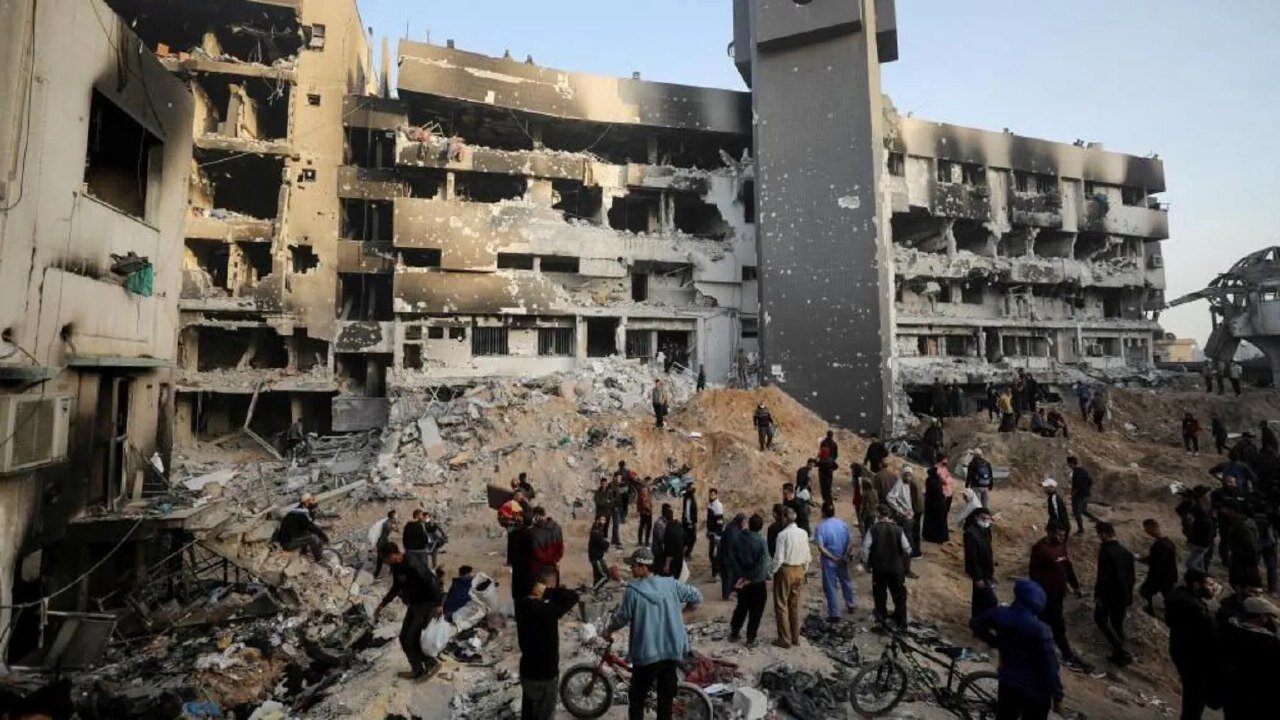Palestinians recount horrific conditions at Al-Shifa hospital

After Israeli forces pulled out of Gaza City’s vast al-Shifa hospital complex on April 1, following their second raid there, stunned Palestinians who pored over the burnt-out ruins said it reeked of death, the BBC reported.
During the past eight months of war, hospitals have come under repeated attack, with Israel claiming they are used as bases by Hamas. Israel has failed to provide evidence to back up its claim. Hamas has also denied the accusation.
But events at al-Shifa – once the biggest and best-equipped medical facility in the Gaza Strip – have arguably been the most dramatic.
The two-week surprise raid, launched after Israel said Hamas had regrouped at the site, was described by Israel as "precise and surgical".
With decaying bodies sticking out of the sand piled up by combat bulldozers in the courtyards of al-Shifa, the claim that there had been no civilian casualties was immediately questioned.
In recent weeks, four mass graves have been uncovered at the site, with Palestinian search teams saying that several hundred bodies have been found.
The BBC has worked with a journalist in Gaza to follow developments.
“We’ve extracted martyrs, many of whom are decomposed and completely unidentifiable,” a Palestinian Civil Defense worker, Rami Dababesh, said grimly on May 8 as he stood by a line of white plastic body bags at al-Shifa, wearing a face mask and full protective gear.
“We’ve found corpses of women, children and individuals without heads as well as torn body parts,” he added.
The Civil Defense lacks forensic equipment and expertise, but its teams have been using photos and videos to document the remains. A director, Dr Mohamed Mughir, said there were suspicious finds; describing how “signs of field executions, binding marks, gunshot wounds to the head and torture marks on the limbs were observed on the bodies of some martyrs".
On April 15, the BBC met two men whose dead mothers were last seen being treated at the hospital. Their bodies had just been recovered from a mass grave.
“I came running here when they told me of the grave,” said Mohammed al-Khatib, who had spent days searching for his mother, Khawla. “By the grace of almighty God her body was found.”
Walid Fteima said his elderly mother, Lina Abu Leila, was being treated for malnutrition and severe dehydration when she died. Her body was decomposed, and he could only identify her from injuries she had from an Israeli bombing last year. “[She] had a toe amputated on each foot,” he explained.
The local WHO representative, Dr Rik Peeperkorn, says this group endured “horrific conditions”. After being repeatedly moved around the complex, he says, they “actually ended up in the human resources building which was completely unfit for treatment". Ultimately, he says, 20 patients died.
Several surviving patients – all wounded in previous Israeli strikes – told the BBC they were given only tiny quantities of food such as canned tuna. They said there were severe shortages of drinking water and medication.
“The bombing surrounded us 24/7,” said Mohamed al-Nadeem who is half paralyzed. “I am sick and unable to move. I was sleeping on the floor without blankets.”
“There were no dressings or painkillers,” said Rafif Doghmush, 15, whose foot has been amputated.
